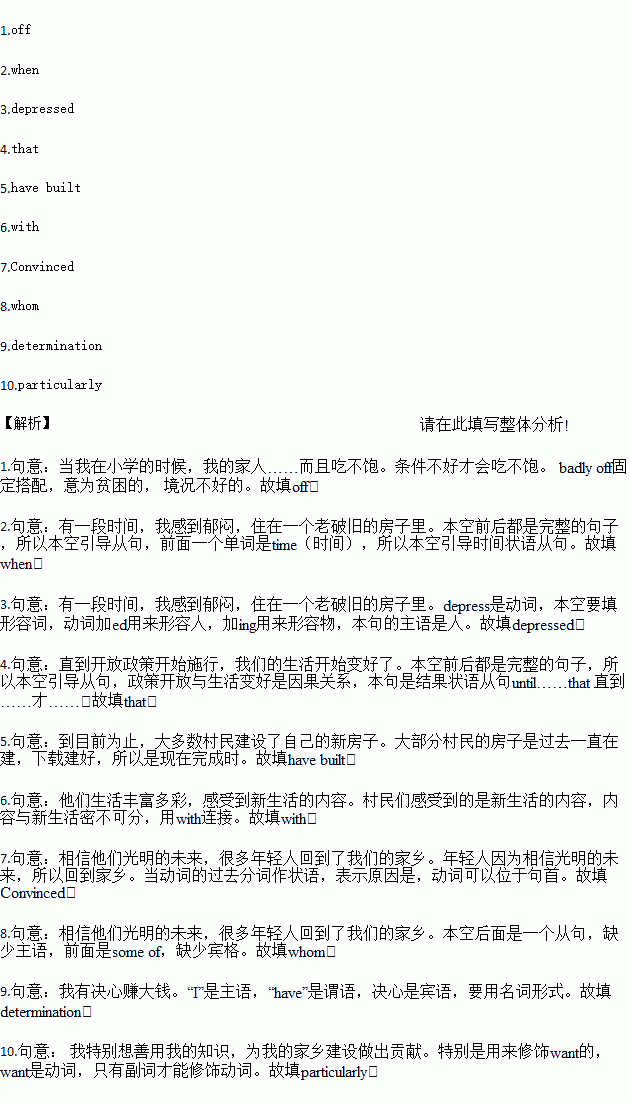题目内容
When I was at primary school, my family was badly 1.with not enough to eat. There was a time 2. I felt 3.( depress ), living in an old shabby house. It was not until the opening policy was carried out 4. our life began to become better. Up to now, most of the villagers 5.(build ) new houses of their own. They live a colourful life, feeling content 6. their new life. 7. (convince) of their bright future, a lot of young people return to our hometown, and some of 8. are in search of opportunities to set up their own business. I have the 9. (determine ) to make a good fortune as well. I 10.(particular) want to make good use of my knowledge to contribute to the construction of my hometown .
练习册系列答案
相关题目

